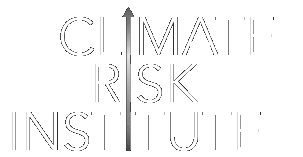Details
Learning Objectives
By the end of this course, you will be able to:
- Understand the foundational relationship between climate change and the economy
- Identify exposure and vulnerability to climate-related financial risks within your organization
- Develop the groundwork for effective planning and decision-making for mitigation and adaptation
Certification / Credential
Climate Adaptation Fundamentals Micro-credential: Elective Course.
The course is aligned with the Climate Adaptation Competency Framework (CACF, 2021)
Alignment URL: https://can-adapt.ca/sites/weadapt.org/files/aln-competencyframework_2021_1.pdf
This course has been designed to help non-financial professionals working across multiple disciplines gain a greater understanding of the relationship between climate change and the economy and, in particular, the financial risks that arise from this relationship.
It’s structured in modules, that cover:
- Physical risks related to direct exposure to climate hazards in the value chain
- Transition risks arising from abrupt transitions to a low-carbon economy
- Systemic risks transmitted throughout the economy
At the end of the course, participants will understand the various pathways via which climate change impacts financial interest and will learn frameworks that can be used to identify climate-related financial risks within their own organization.
Course Outline / Syllabus
In this course, you will:
- Explore risk pathways that link climate and economic systems
- Understand financial impacts associated with physical risks related to direct and indirect exposure to climate hazards in the value chain
- Learn about transition risks arising from abrupt transitions to a low-carbon economy
- Examine civil liability and litigation risks related to climate change
- Analyze systemic risks transmitted throughout the economy
Assessment Methods
Most professional certificate courses are not graded numerically or with a letter grade, but rather assigned a designation of ‘complete’ or ‘incomplete’. A student is only assessed as ‘complete’ if they have demonstrated in a meaningful way that they have met the learning outcomes associated with the course. This may be assessed through written contributions, group work, and discussion.
A student that misses significant portions of the course or fails to demonstrate 40% (or more) of the stated learning outcomes would not meet the bar for ‘complete.’ Rather, the standard for an assessment of complete would be at least 70% at a minimum.
We maintain this as a standard in order to provide academic pathways into graduate programs.
![[object Object] avatar](https://infpuhjaxslesnsctyaj.supabase.co/storage/v1/render/image/public/images/headers/55f6e3d66cb99cfa48b415ed06d6c556f1a963359e90ae23b06bb6bff16e6d7b?width=368&height=368&resize=contain) The Financial Impact of Climate Change
The Financial Impact of Climate Change


